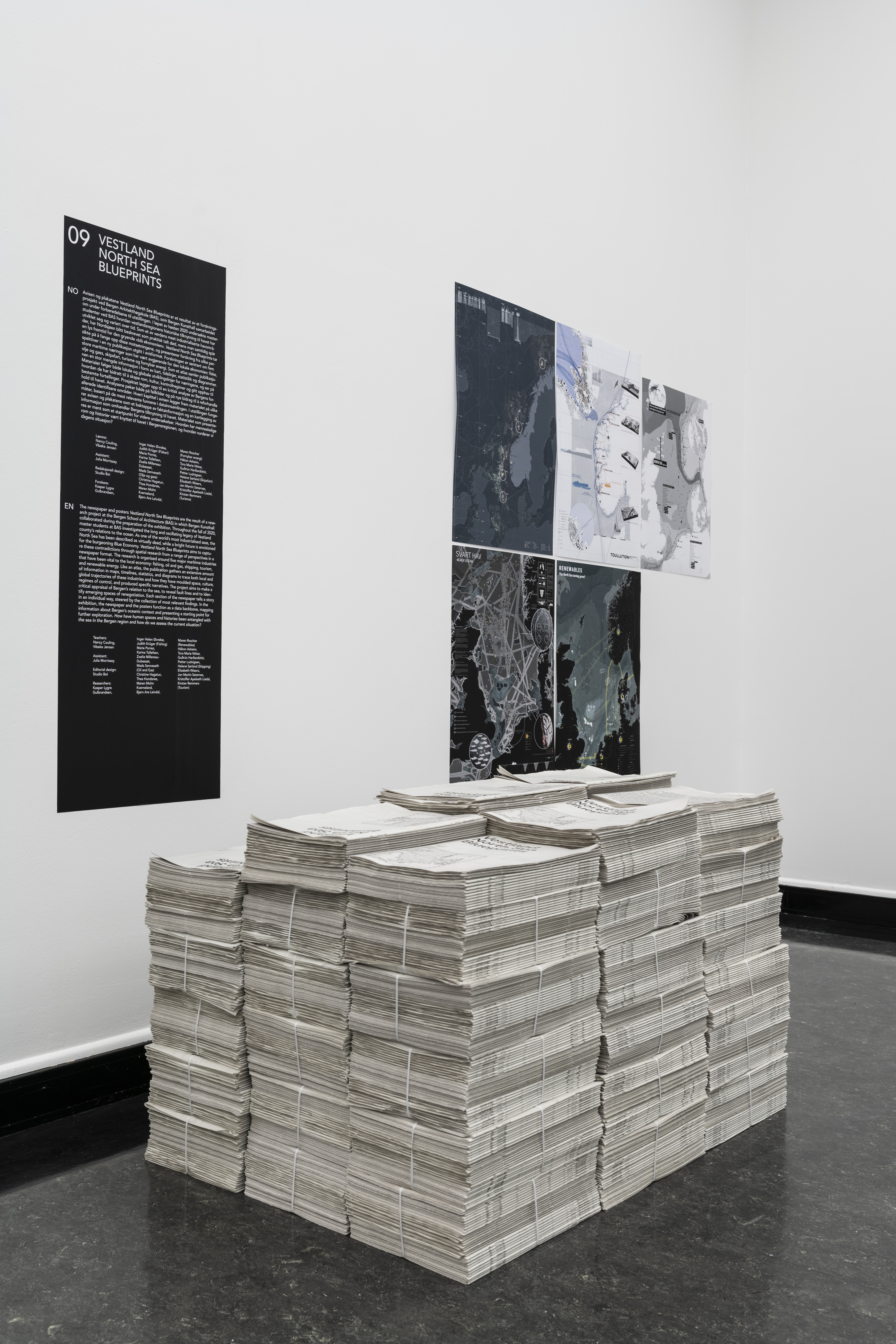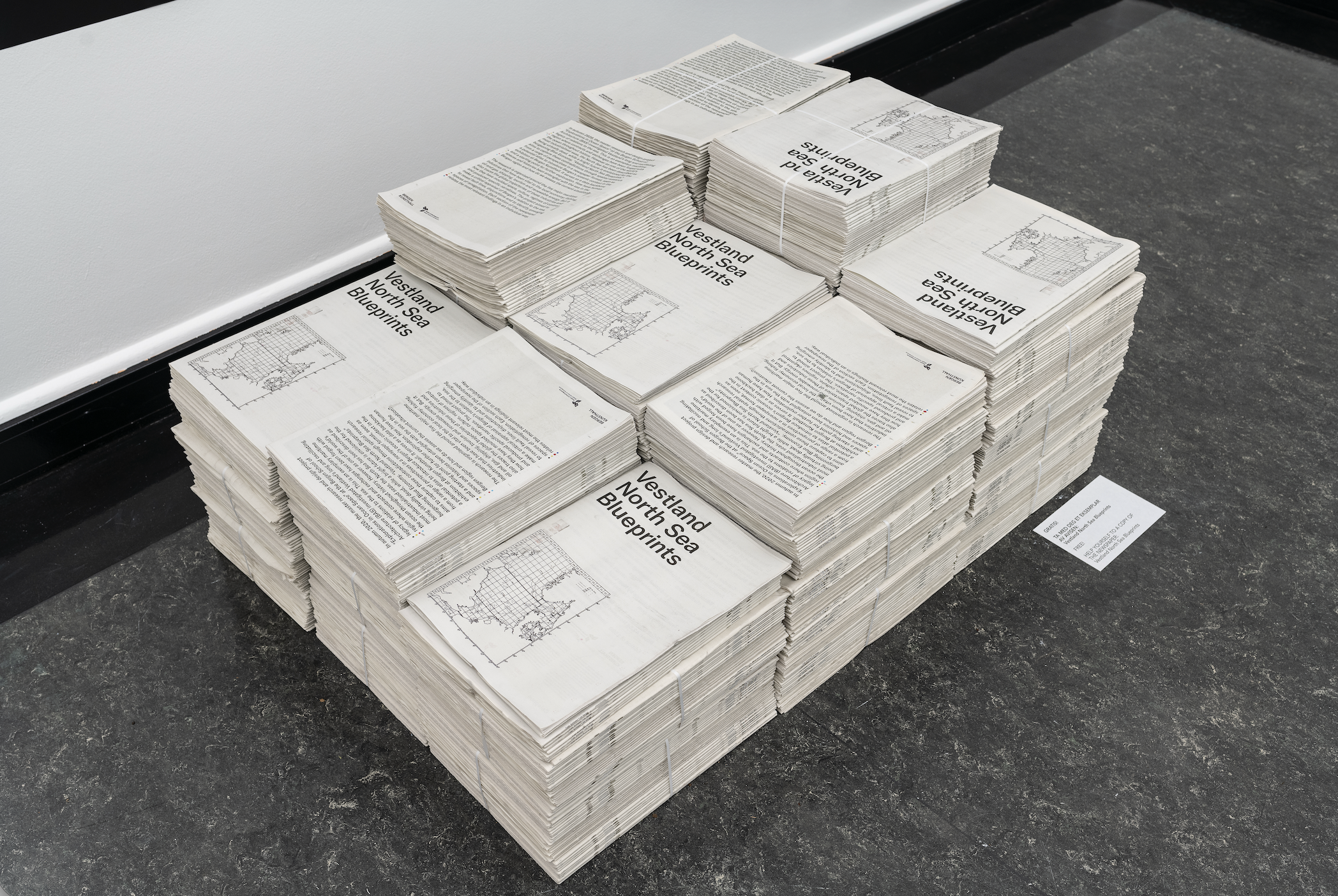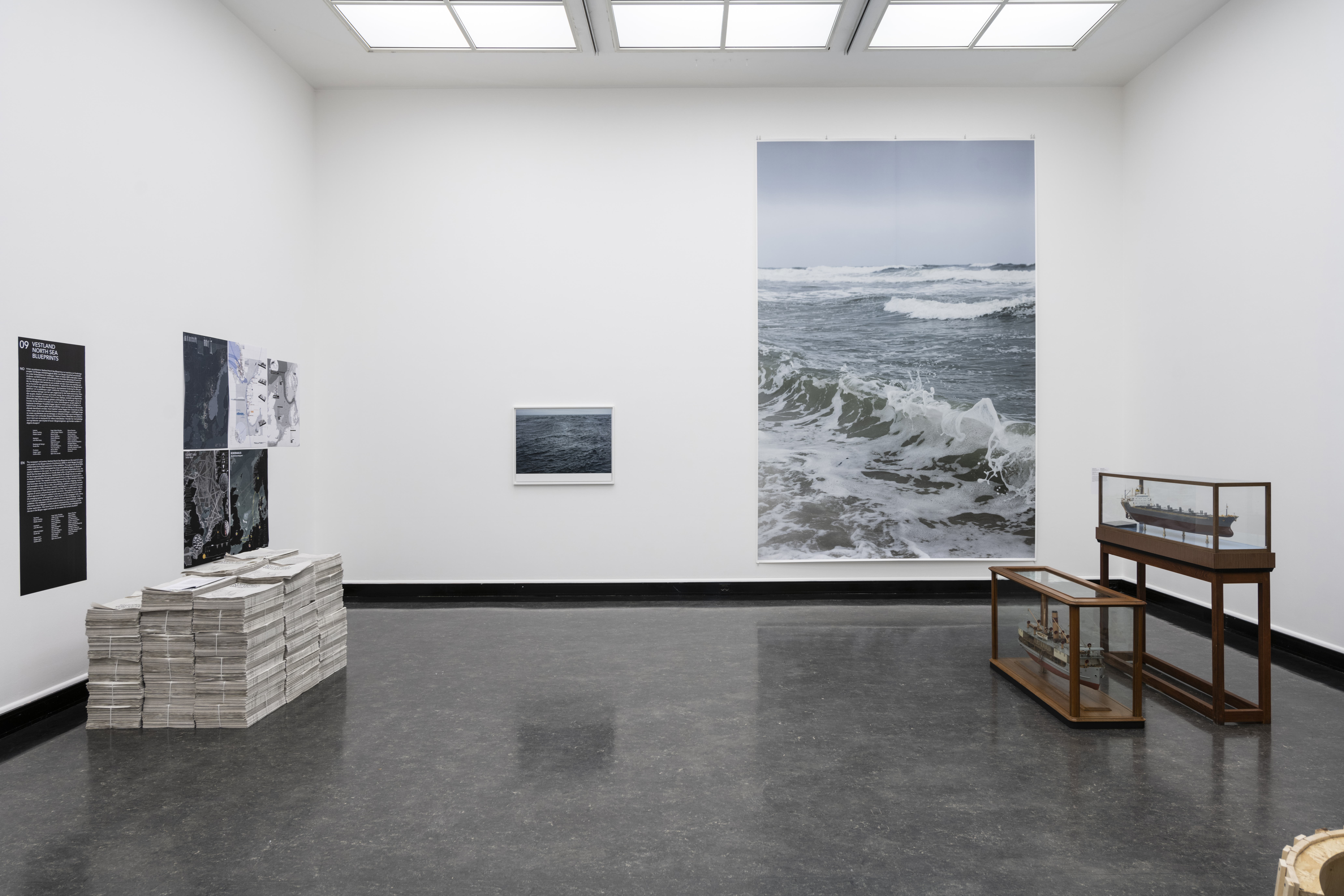How have human spaces and histories been entangled with the sea in the Bergen region and how do we assess the current situation? How can architecture and design be activated to articulate, mediate, connect or de-compose critical aspects of Bergen’s maritime relations?
Bergen is the centre of an exemplary maritime region where sets of relations, contracts and exchanges have been forged with the sea and its resources throughout history, however as one of the world’s most industrialised seas, the North Sea has been described as being virtually dead (John Palmesino). It is urgent that the extraction of resources be viewed in relation to the common responsibility for the environment, both short- and long-term. Bergen is directly experiencing the effects of climate change, of maritime pollution and of major transformations in the fishing industry, while new technologies for “clean” fossil fuel and closed system fish farming are promoted as solutions. We make a critical appraisal of Bergen’s relation to the sea, aiming to reveal fault lines, disjunctions and to identify emerging spaces of renegotiation.
Building on the North Sea findings from Explorations in Ocean Space I (BAS autumn 2019), the course investigates the anchors of the five maritime industries most vital to the economy; fishing, oil & gas, renewables shipping and tourism, but also tracing the global trajectories of these industries and how they have moulded space and culture, developed their own regimes of control and produced specific understandings and types of knowledge. Tensions emerging between containment and fluidity, transparency and concealment, contingency and control, inspire a series of preliminary speculative “blueprints” to be explored in collaboration with Bergen Kunsthall and exhibited as part of their Ocean Exhibition 2021.



The Ocean Exhibition, Bergen Kunsthall, 28.08.21–31.10.2, Photos by Thor Brødreskift